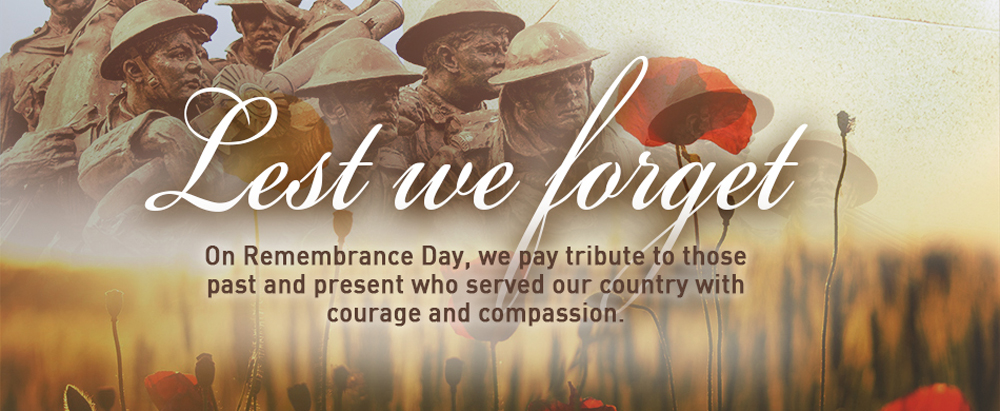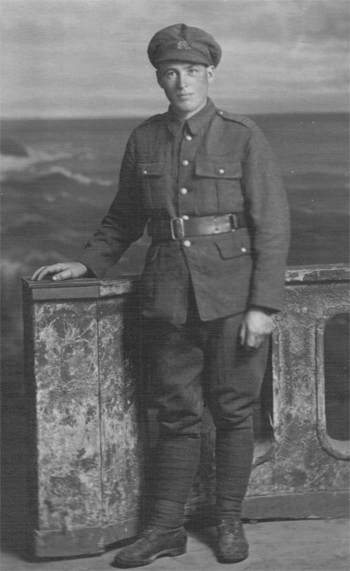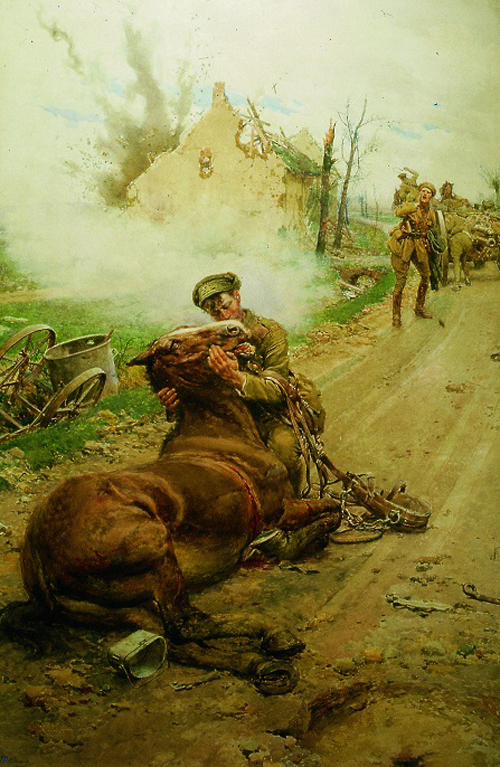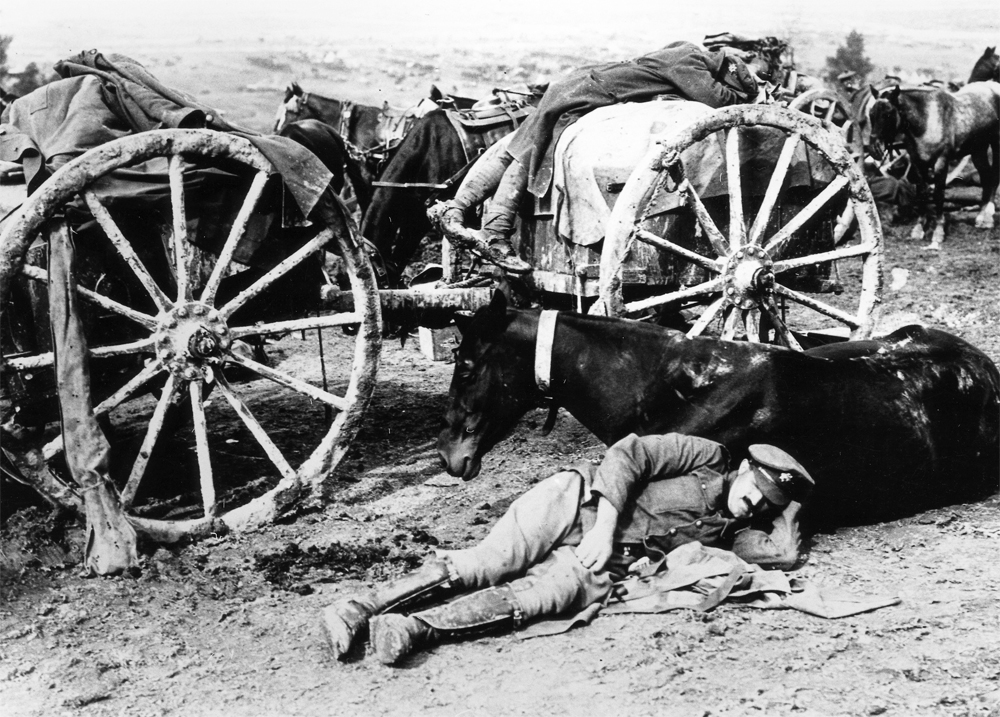
by Bob Gates
November 11, 2018 marks the centenary of "The Great War." Whether you know it as Armistice Day, Veterans Day, Remembrance Day or by its informal name, "Poppy Day," it is one of the most revered days on the calendar.
The first of the world wars only came to be known as World War I when the Second World War struck with all its fury in 1939. Until then it was known as The Great War.
It is difficult to imagine that 100 years have passed since the warring parties agreed to an unconditional ceasefire on November 11, 1918. The War was supposed to be the "war to end all wars." So, what have we learned? World War ll, the Korean War and the Vietnam War would surely have veterans muse -- not much!
The Great War -- Facts
> While there were many contributing factors, it is widely accepted that the assassination of Archduke Ferdinand on June 28, 1914 was the cause.
> The War began July 28, 1914 and ended November 11, 1918 when Germany surrendered to the Allied Forces and all nations agreed to an unconditional ceasefire while the terms of the peace were negotiated. The resulting Treaty of Versailles formally ended The Great War on June 28, 1919.
> The human death toll was 20 million -- 10 million military personnel and 10 million civilians.
> An estimated 16 million animals served in The Great War. Of that total, some eight million horses, donkeys and mules died. The major factors responsible for their deaths were shell and machine gun fire, gas attacks, freezing mud, exhaustion and starvation, as well as mud-borne and respiratory diseases.
The Great War was one of the deadliest wars in history and with most of its veterans now gone, the phrase "lest we forget" takes on an even greater importance. It is a phrase that evokes sacred war-related images.
The brutality of The Great War was so horrific that many of its veterans became known as the "Silent Generation," seldom speaking of their trench warfare experiences. They were haunted by what they heard and saw.

Manitoban Wendell Mustard, veteran of The Great War, circa 1918.
Gladstone's Wendell Mustard, who passed in 1986, is the father of Assiniboia Downs owner/trainer Doug Mustard, who almost everyone knows in these parts.
The elder Mustard enlisted in 1916 and found himself in Europe shortly thereafter with the 12th Canadian Field Ambulance Corps. As an ambulance driver he and his mules provided transportation services on the battlefield. He was never fearful for his life, but he constantly worried about the welfare of his mules.
Mustard always considered himself a nothing special kind of guy and never spoke of the war. On November 11 every year he would quietly reflect on what for him was a solemn day.
He wasn't one to partake in any of the formal ceremonies. He had the opportunity to attend the 60th anniversary remembrance for Vimy Ridge, but Private Wendell Holmes Mustard had no interest in returning to the site of the battlefields of Europe. Once was enough!
On Remembrance Day we pay tribute to the men and women who gave their lives in the name of freedom. On this very special anniversary, let us not forget the dedicated, unsung group of souls from the animal kingdom -- the donkeys, mules, camels, dogs, cats, pigeons, canaries and the reason for our special tribute -- horses! They too, all gave their lives for the cause of freedom.
At the time of The Great War, mankind was on the cusp of many technological advances, in terms of modern warfare. The hawks of war had found new and more deadly ways of destroying enemy forces. No war before or since saw such a clash of weaponry -- the tried, tested, true and futuristic. The result could not have been uglier, especially for the war horses.
Horses are the members of the animal kingdom most associated with The Great War, yet they seldom receive the credit due to them. As was recognized in Private J. R. Johnston's memoir "Riding into War."

Goodbye Old Man. Painting by Fortunino Matania.
"Very little has been said about the horses and mules that were used and what they suffered is beyond all description."
Horses endured the worst of The Great War. They were defenseless against the perils of war, and even if they were fortunate enough to escape the modern weaponry -- starvation, disease and exposure were always waiting in the wings.
At the beginning of The Great War horses were used primarily in cavalry units, but it wasn't long before they were phased out of that task, as they were ineffective when matched against the weapons of the day.
And it wasn't just the danger of the bombs. The craters left by the explosions were deathtraps. The shell holes filled with mud and water and turned into murky would-be graves, where horse and rider could slip mercilessly to their death.
As the war progressed, horses were used for logistical support. Their ability to traverse deep mud and rough terrain made them a valuable commodity when it came to tasks such as reconnaissance, carrying messengers, transporting artillery, ambulances, ammunition and supplies to the front lines.
The loyalty developed between man and horse made for inspirational prose and paintings, none more touching than Fortunino Matania's "Goodbye Old Man" which depicts a soldier comforting his fallen comrade on the roadside.
Susan Leyland's poem The War Horse Who Returned paints a vivid picture of the unspeakable horrors as seen through the eyes of a horse who had returned from The Great War.
The War Horse Who Returned
From this peaceful land
To hellfire we were sent.
Bomb blasts, shellfire and barbed wire,
Explosions, fearful gas and groans,
Lay man and beast wrenched and maimed.
On foreign soil last breaths exhaled.
Through horror, fear and pain
Knee-deep mud, cold and rain
We heaved and pulled
With little to sustain.
We don't feel like heroes,
Though heroic tasks were done.
We knew it was our duty
To get the battle won.
I am home again at last.
My legs are swollen and my body weak,
My skin and cuts are healing,
But I will not forget.
So here in silence with lowered head,
Over the bones of fallen friend
I stand forever to honour
All those who came not home.

A well deserved rest during The Great War. For man and horse.
And so it is, on the 11th hour, of the 11th day, of the 11th month, we remember those who unselfishly met their fate in the storm of war.
Among the graves of the fallen, the spirits of our four-legged friends roam peacefully amid the tear-soaked poppies of Flanders Fields. Our equine heroes gave so much, in return for so little.
Lest We Forget!


